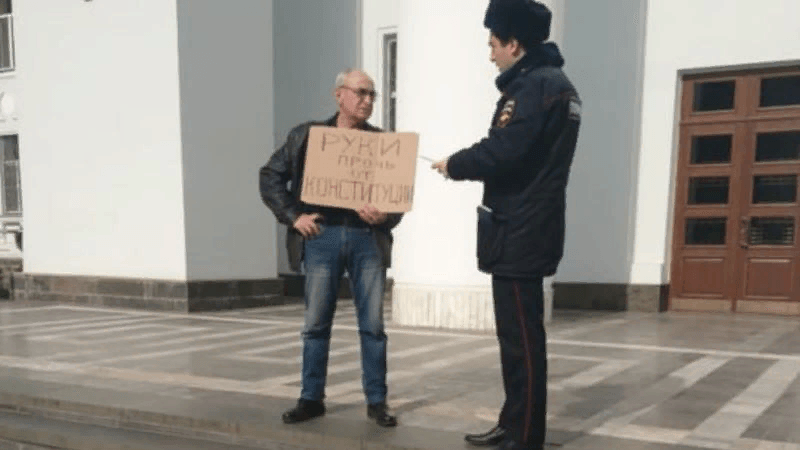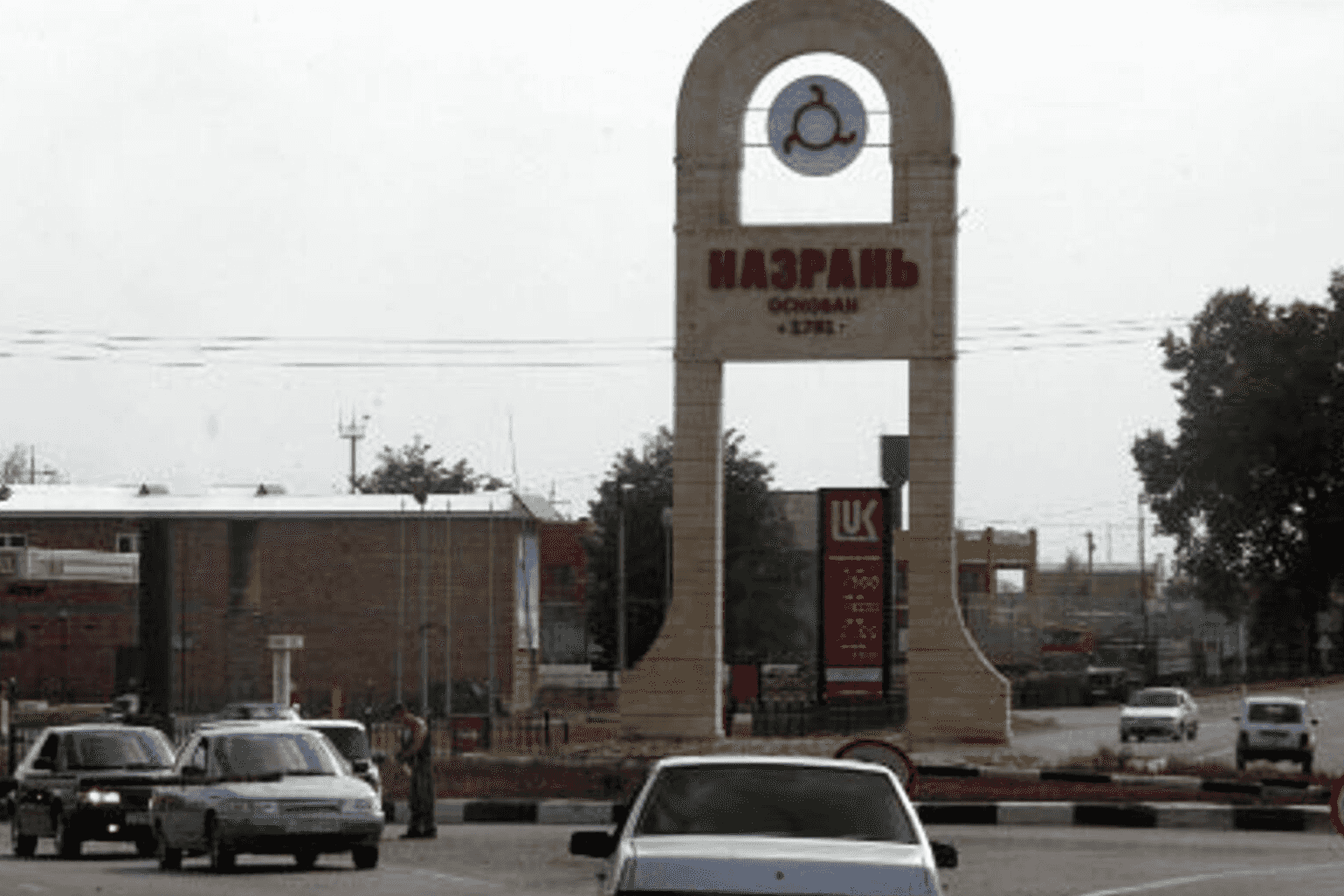
Single pickets against new constitutional amendments were held in Kabardino-Balkaria on 12 March, that same day, in Ingushetia, representatives of influential Ingush teips sent open letters to Russian President Vladimir Putin criticizing the amendments.
On 22 April, Russians will vote on more than 40 amendments to the country’s Constitution. Among the amendments are the priority of the Constitution over international law as well as a reset of presidential term limits for Vladimir Putin, who, if the amendments pass, will be able to remain president until 2036.
The amendments also give Russian language supremacy over other regional languages.
‘The state language of the Russian Federation throughout its territory is the Russian language as the language of the state-forming nation that is part of the multinational union of equal peoples of the Russian Federation’, the amendment reads.
On 11 March, the State Duma, Russia’s lower chamber of parliament, adopted the law on constitutional amendments in its third reading. On the same day, the Russian senate, the Federation Council, approved the law.
One senator voted against it, 160 voted in favour, and three abstained. Among the abstentions were Caucasian senators Arsen Kanokov from Kabardino-Balkaria and Suleyman Kerimov from Daghestan.
Anton Chablin, a political scientist and editor-in-chief of Accents, a news organisation that covers southern Russia, told OC Media that the phrase ‘state-forming nation’ was one of the most ‘explosive’ for representatives of national republics.
‘It was the national republics that stood at the forefront of the movement against the adoption of [amendments to] the Constitution’, he said. ‘This is an indicator, to put it mildly, of the Kremlin’s incorrect policy in such ethnically and religiously complex regions’.
Ingush teips boycott the vote
Ten of Ingushetia’s teips (clans) have opposed the amendments so far: the Gagiyev, Ozdoyev, Bekov, Mokhloyev, Tarshkhoyev, Mestoyev, Pliyev, Khalukhayev, Shaukhalov, and Kodzoyev. Each teip has tens of thousands of members.
One of the most numerous teips in Ingushetia, the Ozdoyev, was the first to declare a boycott of the amendments.
The group criticised the ‘unfair treatment’ of the Ingush people by the Russian authorities from the moment the Ingush became a part of Russia 250 years ago. This, they said, was despite ‘the Ingush always remaining faithful to the Fatherland’.
The Khulkhoy teip made similar complaints in an open letter. ‘The opinion of the whole [Ingush] nation is not taken into account [in Russia]’, it reads. Meanwhile, the Bekov teip wrote that ‘the norms of the Constitution of the Russian Federation with respect to the Ingush people are not fulfilled’.
Together with the 1944 deportation of the Ingush people by the Soviet government, the appeals also criticised the recent border agreement between Chechnya and Ingushetia, as a result of which Ingushetia lost about 9 % of its territory.
[Read on OC Media: Chechen–Ingush land swap sparks protests in Ingushetia]
The Ozdoyev teip wrote that they saw no reason to vote because ‘the country’s authorities have violated the rights of a whole nation for a long time’, and ‘all appeals by the Ingush people on flagrant violations of their rights remain without a positive answer’.
None of the letters were signed with specific names.
Magomed Mestoev, a spokesperson for the Mestoyev teip, who also boycotted the amendments, told OC Media that this was done to avoid reprisals from the security forces. It was ‘a decision on behalf of the teip and the entire teip is responsible’, he said, adding that it was ‘a kind of protection’ from reprisals from the authorities, including being labelled as ‘extremists’.
Magomed Mutsolgov, head of the Mashr human rights organization in Ingushetia, said the amendments contained a ‘threat to the Russian constitutional order’ and to the interests of Ingushetia.
He sent an open appeal to the head of Ingushetia, Makhmud-Ali Kalimatov, urging him to oppose the adoption of the amendments.
According to him, these amendments contain a direct threat to local self-government, and are a ‘direct infringement of small nations, their culture, ethnicity and the right to national-state self-determination’.
Protesters in Kabardino-Balkaria arrested and acquitted
On 12 March, Activist Alik Shashev and deputy head of the Khabze (Custom) public organisation Azamat Shormanov held single pickets in front of Kabardino-Balkaria’s parliament with posters that read ‘Hands Off the Constitution’ and ‘Circassians Against the Violation of the Constitution of Russia’.
After concluding their pickets both activists were detained by the police.
The same day, the parliament of the republic considered amendments to the Constitution of Russia, which were approved by the Russian State Duma and the Federation Council the day before.
Shormanov told OC Media that they made their pickets to express their disagreement with the fact that only one nation of the Russian Federation, that is, the Russian nation, is referred to in the amendments as ‘state-forming’, and that only Russian is considered to be the ‘state-forming language’.
According to Shormanov, after his arrest, employees of the Center for Combating Extremism (Center “E”) arrived at the police department and demanded that both activists write explanations for their actions.
‘Having taken these explanatory notes, the employees of the Center “E” left without providing us with copies of the notes which they were supposed to provide’, he said.
On 13 March, the administrative cases of both men were examined in court, and the Nalchik city court, after hearing the arguments of the defense, did not find Shormanov and Shashev’s actions to have been a breach of the law and both activists were released.
Muayed Bezirov, a lawyer for Shormanov and Shashev, told OC Media that, in his opinion, the protesters were detained because of law in Kabardino-Balkaria that prohibits holding public events near administrative and government buildings.
‘This law speaks of rallies, demonstrations and other mass actions. It does not say anything about the pickets’, he said.
Zaur Zhemukha, activist and member of the Circassian public organization Zhylebze (Voice of the People), told OC Media that he believes the detention of protesters and the amendments to the Constitution indicate the desire of the Russia’s leadership to create a unitary state with one ‘main’ people (Russians) and one ‘main’ language (Russian).







